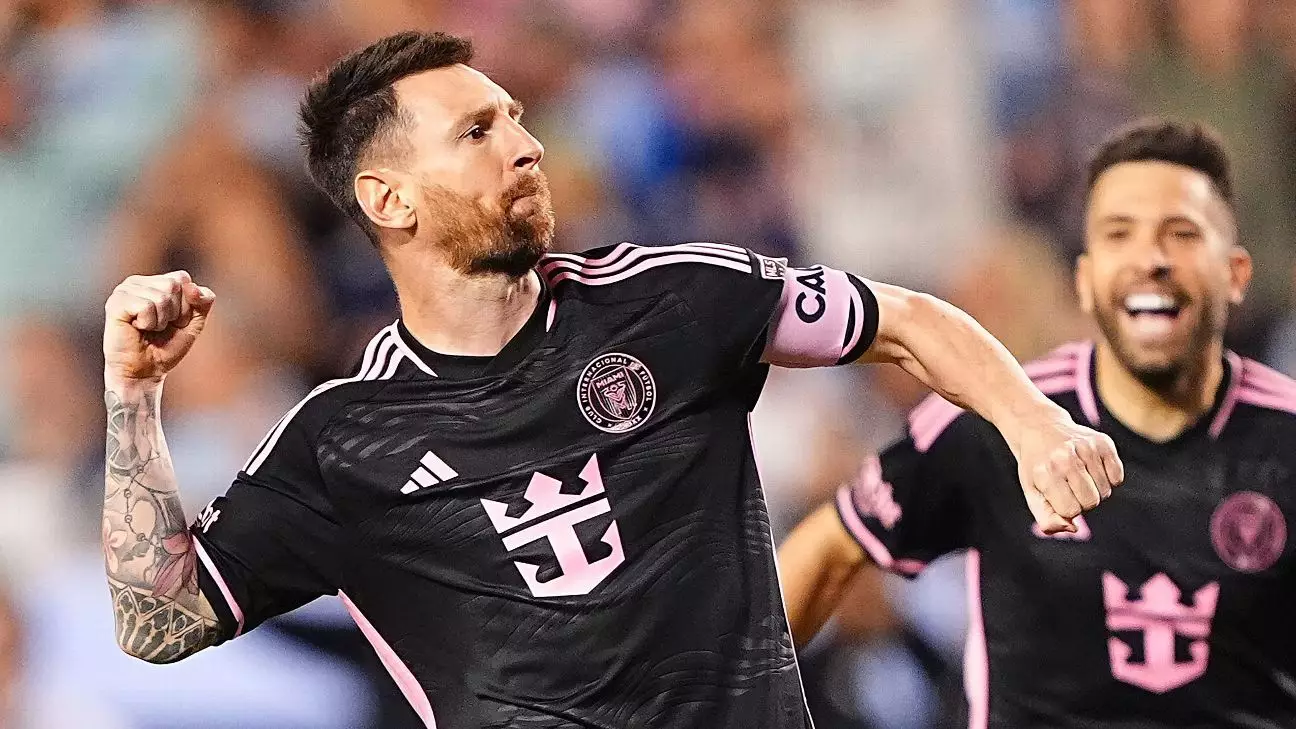The definition of “Most Valuable Player” (MVP) is a labyrinth of perspectives and criteria that differ dramatically among fans, analysts, and players themselves. At its core, the MVP award should ideally recognize an athlete who demonstrates exceptional skill, elevates their team, and showcases undeniable prowess on the field. However, the landscape of sports awards is rife with distinctions that complicate a straightforward evaluation. Should the MVP be defined solely by individual performance, team success, or even the broader narrative of underdog triumphs? This debate is especially relevant in Major League Soccer (MLS), where recent discussions surrounding Lionel Messi’s MVP status have sparked fervent dialogue.
Messi’s impressive claim to the MLS Landon Donovan MVP award has reignited these questions, propelling the ongoing discourse over what constitutes true value in a player’s contribution to their team.
In soccer, where contributions can be quantified in goals and assists, Messi’s statistics this season speak volumes. With 36 direct contributions—20 goals and 16 assists—he has not only showcased his ability to score but also his capacity to create opportunities for teammates. This stat alone positions him at the pinnacle of the league’s performers. A rate of 2.18 goal contributions per 90 minutes played is staggering, especially when compared to his teammates or other players in the league, who lag far behind with significantly lower contributions.
However, when examining Messi’s contributions closely, a crucial caveat emerges. Despite these outstanding numbers, he participated in merely 55.8% of Inter Miami’s regular-season games (19 out of 34). This aspect brings forth an incongruity that critics cannot ignore. The inquiry arises: Does one remarkable performance in a limited appearance justly compensate for a significant absence on the field? While Messi’s influence during those games cannot be minimized, the validity of his MVP status becomes subject to scrutiny amidst discussions of availability and consistency.
To enhance the conversation, comparisons can be drawn to MVP selections from other major North American sports leagues. Historical MVP award winners in the NFL, MLB, and NHL frequently demonstrate higher participation rates than Messi’s modest 55.8%. Such comparisons expose a potential double standard when it comes to soccer. Football, for example, allows for player substitutions at any time, resulting in a different type of impact on a team’s overall performance and evaluation. Soccer’s rigid format, which does not permit substitutions at will, necessitates careful consideration of how value is derived from a player’s presence or absence.
This analytic lens raises a pivotal question: should Messi’s exceptional impact when he is in play outweigh his limited availability? The number-crunching becomes multi-dimensional when juxtaposed with these historical precedents, compelling observers to evaluate what should weigh more: dazzling statistics or a player’s overall participation and influence over a season.
It is essential to recognize that Messi’s value transcends mere goals on the scoreboard. His magnetism has galvanized player recruitment, elevating Inter Miami to a stature of competitiveness previously unseen in the franchise’s history. Players of high caliber, like Suárez, Busquets, and Alba, may not have joined the team had it not been for Messi’s allure. This additional dimension complicates conventional notions of MVP, as it suggests that Messi’s value extends far beyond what he offers on the field in raw statistics.
Furthermore, Messi’s presence catalyzes significant economic benefits for the league, impacting sponsorships, ticket sales, and television viewership. While these factors should not be overtly influential in MVP assessments, one cannot deny the subconscious sway they may hold in the minds of voters. This entanglement of sporting merit with financial implications creates a complex tapestry of considerations that cannot be easily unraveled.
As the debate surrounding Messi’s MVP candidacy unfolds, one cannot overlook the performances of other contenders within the league. Players like Evander and Benteke have undoubtedly delivered remarkable seasons, but their achievements have often occurred within teams that lacked playoff success. In contrast, Messi’s integration into Inter Miami has not only transformed the squad’s capability but also redefined what it means to be a parts player in a highly competitive environment.
Ultimately, the question arises: with the field of competitors underwhelming in comparison, does Messi’s unique narrative—along with his statistical excellence—secure him the MVP award in a season ripe with divisive interpretations? The case presents multiple angles, suggesting that while Messi might not excel in every criterion traditionally associated with the MVP, his unique convergence of talent, influence, and the ability to draw and enhance the performance of a remarkable supporting cast undeniably underlines his candidature.
While scribes may continue to wrestle with the definition of “value,” Messi’s multifaceted contributions render him an unequivocal contender for this year’s MLS MVP award—a complex assertion in a sport where nuance prevails over mere numbers.

